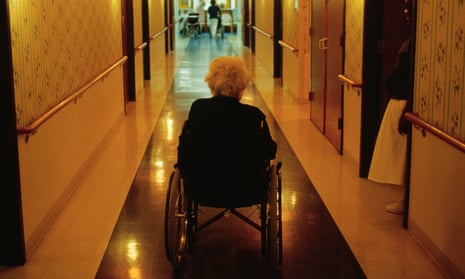Almost 150 aged care homes that did not meet minimum standards for safety and care were awarded four- or five-star compliance ratings last year, leading to concerns families are potentially being misled.
Two former advisers to the aged care royal commission believe a “flaw” in the star rating system – launched in December 2022 to help families make informed decisions about where they send loved ones – has prioritised providers over consumers.
“Star ratings are so far away from being helpful to consumers that they are a total waste of time,” said Kathy Eager, an adjunct professor at the University of New South Wales, who advised the royal commission on how the scheme should be designed.
Aged care homes are routinely inspected by the Aged Care Quality and Safety Commission (ACQSC) to ensure they meet a range of minimum quality standards including; treating residents with dignity and respect, providing safe and appropriate clinical care, and offering services that support health and wellbeing.
When homes don’t meet those standards, they are listed on the ACQSC’s non-compliance register, which outlines the criteria not met. But those breaches are not considered when star ratings are awarded unless formal action is taken by the ACQSC.
A report by Rodney Jilek, an adjunct professor at the University of Canberra, found 68 of 501 homes listed on the non-compliance register between November 2022 and November 2023 were awarded five-star compliance ratings.
The report found 81 homes listed on the register were awarded four-star compliance ratings. About 300 homes on the register were granted a three-star compliance rating, which is deemed as an “acceptable” level.
“A three-, four- or five-star home can be found by the commission to not even meet the basic minimum standards of accreditation,” said Jilek, who also runs his own aged care consultancy firm
The ACQSC’s executive director, Peter Edwards, said the regulator was not ignoring non-compliance.
“A finding of non-compliance in itself does not impact a service’s star rating – rather it is only where the commission then uses its formal powers to require a service to take corrective action that a service’s star rating will be impacted,” Edwards said in a statement.
“That makes sense because most of the commission’s regulatory powers are designed to be used where a provider fails to take seriously their obligations to address identified non-compliance.”
But Charles Maskell-Knight, a former health department official and a senior adviser to the royal commission, said the star rating system had “many flaws” and was “clearly constructively misleading” for consumers.
“In any sensible world, failing to meet the quality standards would mean that a home was not providing an acceptable level of care and therefore could not maintain a three-star rating,” Maskell-Knight said.
after newsletter promotion
“People should be able to assume that a three-star rating indicating an acceptable quality of care means that the quality standards are being met. They shouldn’t have to read the fine print that says a failure only matters if the regulator takes formal action.”
Edwards said the ACQSC would not hesitate to take action against homes that did not improve their standards once being listed on the register.
“We want to create an environment where providers are incentivised to actively engage with us and demonstrate that they are willing to take necessary action to self-correct as soon as possible when things go wrong,” Edwards said.
Last month, the aged care minister, Annika Wells, said the star rating system had revealed a significant improvement in the quality of homes across the country.
“One year on and star ratings data shows that the Albanese government is delivering its promise to lift the standard of aged care in Australia,” Wells said.
Eager said being on the register should lead to a zero-star rating.
“If we are going to have a competitive market, then consumers should have accurate information so they can make informed decisions,” Eager said.
